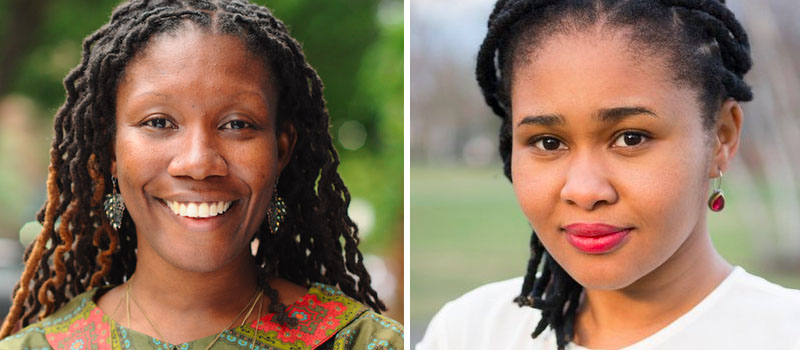
Enjoyed reading this on my way to work..Hope you do.
@ndennis_benn: In a 2015 Guardian article, author Taiye Selasi mentioned a review in which Nigerian author Helon Habila criticized NoViolet Bulawayo, author of We Need New Names, of “performing Africa,” or worse, perpetuating “poverty porn.” According to that Guardian article, a reader had reportedly accused you, Chinelo, of poverty porn based on a story from your collection Happiness, Like Water. What pressures, if any, do you feel to represent your country in your work? Do you ever feel obligated to be an ambassador by virtue of being a writer? My mother has been the most fervently vigilant about how I represent Jamaica. When I told her I had an interview about my book as it relates to Jamaica, her first comment was, “Mek sure yuh sell yuh country right.” She has since reminded me every chance she gets as though there is something she fears—perhaps the prospect of the country losing tourists because of her daughter. And of course I’ve challenged her. Because what’s that supposed to mean, “Sell your country right”? I never thought of that as my responsibility.
Chinelo Okparanta: Well, that’s the whole issue of saving face, which it seems your mother is encouraging you to do. And, of course, it makes sense. Privacy can be a beautiful and necessary thing. And yet, there are stories that need to be told, and the power is in the telling. Which reminds me of a quote by Nora Ephron that goes something like this: “When you slip on the banana peel, people laugh at you. But when you tell people you slipped on the banana peel, it’s your laugh… You become the hero, rather than the victim, of the joke.”
I think many of us writing from the margins would do well to keep this quote in mind. There should be nothing shameful about telling our own stories when those stories matter. And, regardless of how hard, how painful, how disturbing the stories we tell, it is in fact empowering to be the ones telling them. When we tell our own stories, we will tell them more honestly, more accurately, and in a less politically biased and oftentimes less denigrating way than anyone else could. By telling our own stories, we define ourselves, rather than leaving ourselves to be defined by others. We refuse to be disenfranchised. And there is dignity in that.
By telling our own stories, we define ourselves, and not leave ourselves to be defined by others. We refuse to be disenfranchised. And there is dignity in that.
Read the rest of the conversation here

